Media from the Meeting
Meeting Summary
See the meeting summary in GEWEX News.
Agenda
Full Agenda: A detailed version of the full meeting agenda is available by clicking here. The agenda will be included as part of the printed registration materials when you arrive.
Keynote Speakers: Click here for bios and presentation summaries from our keynote speakers during the plenary sessions.
Parallel Sessions: Click here to see the list of parallel sessions and presentations, along with abstracts. (Click on the presentation title to see the corresponding abstract.)
Poster Presentations: Click here for the list of posters, assigned poster numbers, and poster abstracts. (Click on the poster title to see the corresponding abstract.)
Wanuskewin Activities: For a guide to the Indigenous cultural sharing and learning activities that will take place at Wanuskewin on May 15, click here. This brochure will be included as part of the printed registration materials when you arrive.
Meeting at a Glance: Download the one-page Meeting Schedule at a Glance. The general sequence of events is as follows:
May 14
- Most visitors will be arriving in Saskatoon
- Workshops and PD activities are being organized by the GWF Young Professionals (see below)
- Evening public event at the Roxy Theatre (7 - 9pm) including an expert panel and discussion on local/regional water issues
May 15
- GWF 2nd Annual Science Meeting begins at TCU Place
- Afternoon events include Indigenous cultural activities at Wanuskewin Heritage Park
May 16
- Meeting continues all day at TCU Place
- Evening banquet (TCU Place)
May 17
- Meeting ends at lunch time
|
Activity |
Description and Location |
|
CFREF Site visit |
The CFREF secretariat will be visiting the University of Saskatchewan and GWF facilities, interviewing and meeting with various members of the program. This is an all-day event, ending about 5:30 PM. |
|
1:30 – 5:00 PM GWF YP workshops, professional development, and other activities |
The GWF YP group will organize a series of events during the afternoon. Location: Agriculture Building, U of S Campus Workshops will run concurrently. 1 hour each. Repeated 3 times. Students may rotate through all 3 sessions sequentially, or chose 2/3. Goal is 20-30 students per session. 60-90 students total.
|
|
5:45 PM |
Buses depart USask residence to transport people to Roxy Theatre |
|
6:00 – 7:00 PM |
Welcome Reception Location: Roxy Theatre, 320 20th St W, Saskatoon |
|
7:00 – 8:30 PM GWF Public Event |
Location: Roxy Theatre, 320 20th St W, Saskatoon Theme: Water for the Prairies The event will include a welcome, keynote address, perhaps a video screening, brief remarks by a group of panelists, and a moderated Q&A session.
Colin Whitfield
Corinne Schuster-Wallace
Chris Spence
Martyn Clark
Patrick Lloyd-Smith
Phil Loring
Graham Strickert
Markus Hecker
John Pomeroy
Helen Baulch
|
|
8:45 PM |
Buses depart Roxy Theatre to transport people to USask residence |
|
Activity |
Description and Location |
|
7:35 AM |
Buses depart from USask residence at 7:35 AM to transport people to TCU Place |
|
7:45 – 9:00 AM |
Arrival, registration, poster set-up, coffee and continental breakfast |
|
Meeting Introduction and Welcoming Remarks |
|
|
9:00 – 9:10 AM |
Opening prayer and remarks – Elder Roland Duquette |
|
9:10 – 9:20 AM |
Welcoming remarks – Karen Chad, VP Research USask., and GWF PI |
|
9:20 – 10:00 AM |
Introduction, GWF overview & updates – John Pomeroy, GWF Director |
|
10:00 – 10:30 AM |
Morning Break |
|
Parallel Sessions |
|
|
10:30 AM – 12:30 PM |
Three concurrent sessions on 1) Climate and Hydrology 2) Human Dimensions and Hydro-Economic 3) Ecosystems and Water Quality. |
|
12:30 PM |
Buses to depart from TCU Place to Wanuskewin Heritage Park. |
|
Indigenous Cultural Sharing and Learning at Wanuskewin Heritage Park |
|
|
1:00 – 1:45 PM |
Arrival and lunch at Wanuskewin |
|
1:45 – 2:00 PM Welcome |
Welcome to Wanuskewin and Introduction
|
|
2:00 – 2:30 PM |
Keynote Garry Carriere to speak on the changing environment of the Saskatchewan River Delta |
|
2:30 – 5:30 PM Indigenous cultural learning activities |
Attendees will divide into groups and take part in various guided activities to advance the understanding of the culture and worldview of the Northern Plains Indigenous Peoples. |
|
5:45 PM Depart Wanuskewin |
Buses to depart from Wanuskewin and transport attendees to downtown Saskatoon and to the USask residence. |
|
Evening |
Meeting attendees are on their own for dinner and other activities |
|
YP Networking and Social 6:30 PM – 9:30 PM |
Location: Basement of Winston’s English Pub & Grill, 243 21st St E Activities: highlight year of YP events, introduce new YP exec, hydro trivia, others tbd. |
| 9:30 PM | Buses will depart Winston's English Pub to USask residence. |
|
Activity |
Description and Location |
|
7:35 AM |
Buses depart from USask residence at 7:35 AM to transport people to TCU Place |
|
7:45 – 8:30 AM |
Arrival, late registration, coffee and continental breakfast |
|
Day-2 Opening and Plenary Sessions |
|
|
8:30 – 8:40 AM |
Opening prayer by Elder Roland Duquette |
|
8:40 – 8:56 AM |
Lightning talks (8 talks; 2-min each) |
|
8:56 – 9:26 AM |
Keynote: Climate and Hydrology: Roy Rasmussen, National Center for Atmospheric Research, Boulder, USA |
|
9:26 – 9:42 AM |
Lightning talks (8 talks; 2-min each) |
|
9:42 – 10:12 AM |
Keynote: Indigenous Nations Water Issues: Bobby Cameron, Chief of Federation of Sovereign Indigenous Nations (FSIN) |
|
10:12 – 10:30 AM |
Questions and Discussion |
|
10:30 – 11:00 AM |
Morning break |
|
Plenary Sessions (continued) |
|
|
11:00 – 11:16 AM |
Lightning talks (8 talks; 2-min each) |
|
11:16 – 11:46 AM |
Keynote: Water Governance – from diagnosis to transformative change; Claudia Pahl-Wostl, U. Osnabrück, Germany |
|
11:46 – 12:02 PM |
Lightning talks (8 talks; 2-min each) |
|
12:02 – 12:32 PM |
Keynote: Ecosystems and Water Quality: Helen Jarvie, NERC Centre for Ecology & Hydrology, Wallingford, UK |
|
12:32 – 1:50 PM |
Lunch |
|
Parallel Sessions |
|
|
1:50 – 3:50 PM |
Three concurrent sessions on: 1) Climate and Hydrology 2) Modelling 3) Ecosystems and Water Quality |
|
Poster and Networking Session |
|
|
3:50 – 6:00 PM
|
Poster session and networking session (cash bar and Hors d'oeuvres starting at 5:00 PM during the poster session) |
|
6:30 – 9:00 PM |
Banquet dinner (including Banquet speaker, Jazz quartet, thanks to volunteers and staff, GWF photo contest slides, etc.) |
|
8:30 - 9:00 PM |
Buses to transport attendees back to the USask campus residence (3 buses departing at 8:30 PM and 4 buses departing at 9 PM) |
|
Activity |
Description and Location |
|
7:35 AM |
Buses depart from USask residence at 7:35 AM to transport people to TCU Place |
|
7:45 – 8:30 AM |
Arrival, coffee and continental breakfast |
|
Parallel Sessions |
|
|
8:30 – 10:30 AM
|
Three concurrent sessions on: 1) Climate and Hydrology 2) Human Dimensions and Hydro-Economic 3) Ecosystems and Water Quality. |
|
10:30 – 11:00 AM |
Morning break |
|
Communications Plenary |
|
|
11:00 AM – 12:00 PM
|
Telling Your Research Story – Presented on behalf of the Communications Core Group Scott White, Editor of The Conversation Canada, will explain how academics can get their research and knowledge known to a wider, non-academic audience. He will take you behind the scenes to show how authors work with The Conversation's editors to create content that is often viewed across the country and around the world. Authors have access to a dynamic analytics dashboard which shows how many times their articles are viewed and what media outlets have published them. Participants are encouraged to bring story ideas to the presentation. |
|
Meeting Closing |
|
|
12:00 – 12:20 PM |
Final remarks and meeting closing Closing prayer by Elder Roland Duquette |
|
12:20 – 1:40 PM |
Lunch |
Plenary Speakers
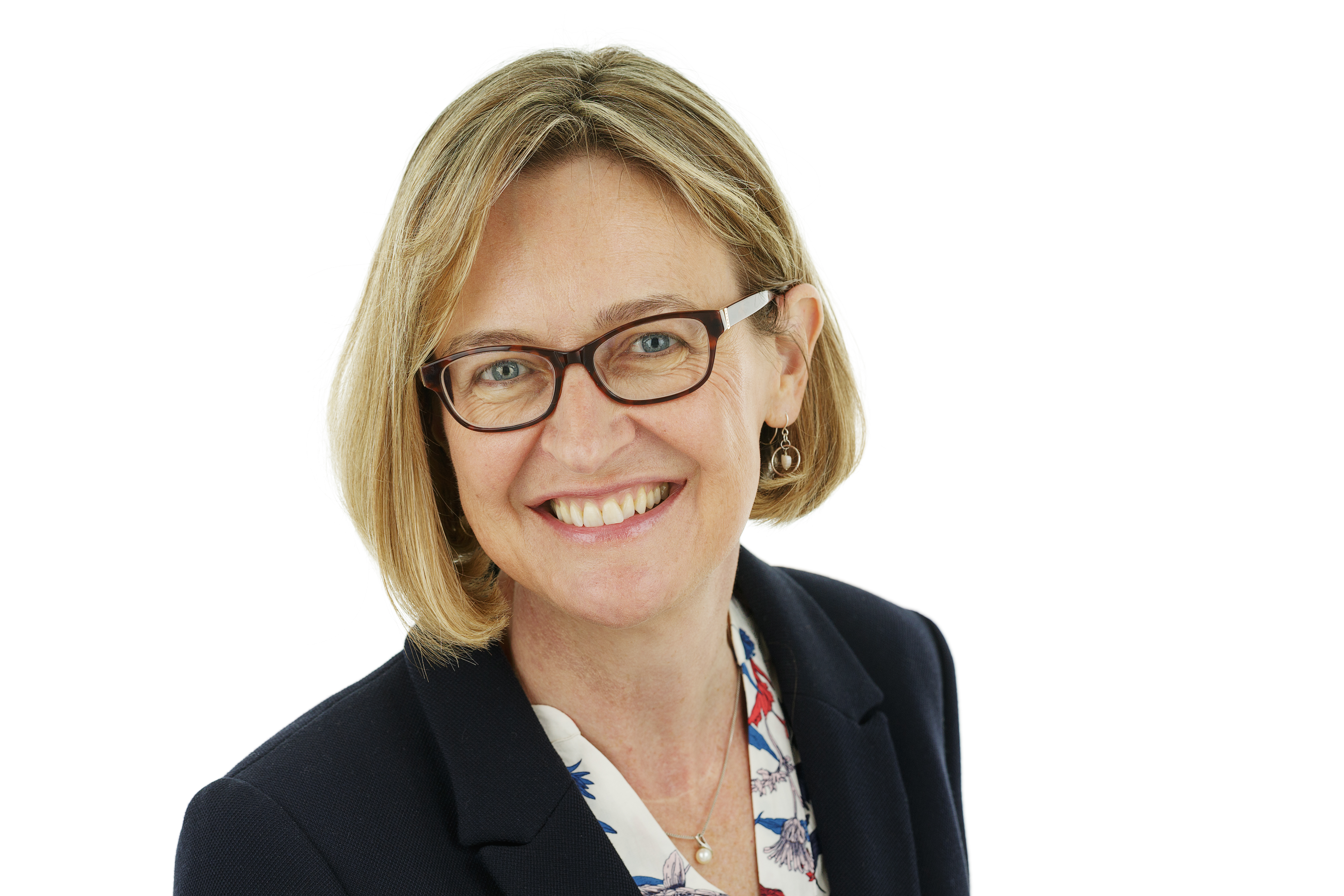
Helen's research encompasses river-system biogeochemistry with particular emphasis on nutrient (phosphorus, P, and nitrogen, N) cycling and water quality, from watershed to global perspectives. A major area is the role of nutrients in river eutrophication worldwide, and how improved nutrient stewardship can help ensure the future resilience of our river water quality and water resource security. Given that society is reliant on P to grow our food, and that phosphate rock is a non-renewable resource, Helen's research also explores how improved P stewardship can ensure future food security and meet water-quality goals.
Helen is a Principal Scientist in Hydrochemistry at the Centre for Ecology & Hydrology, Wallingford, U.K. She is also an Adjunct Professor in Fluvial Sciences at the University of Arkansas, USA; a Visiting Professor in Environmental Chemistry at Plymouth University, UK; and a Visiting Professor in Water Quality Science at the University of Tokyo, Japan.
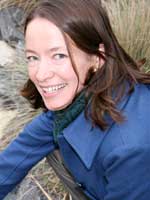
Helen Baulch is a biogeochemist, an associate professor, and a Centennial Enhancement Chair at the University of Saskatchewan. Her work is focused on water security in the prairies -- understanding drivers of pollution, and consequences to aquatic ecosystems and to humans. Helen has published more than 50 journal papers and 12 news articles. Her work is motivated by the need for solutions to address growing issues of water insecurity; work often done in collaboration with partners in government and industry. She is the recipient of a 2019 Provost's outstanding teacher award.
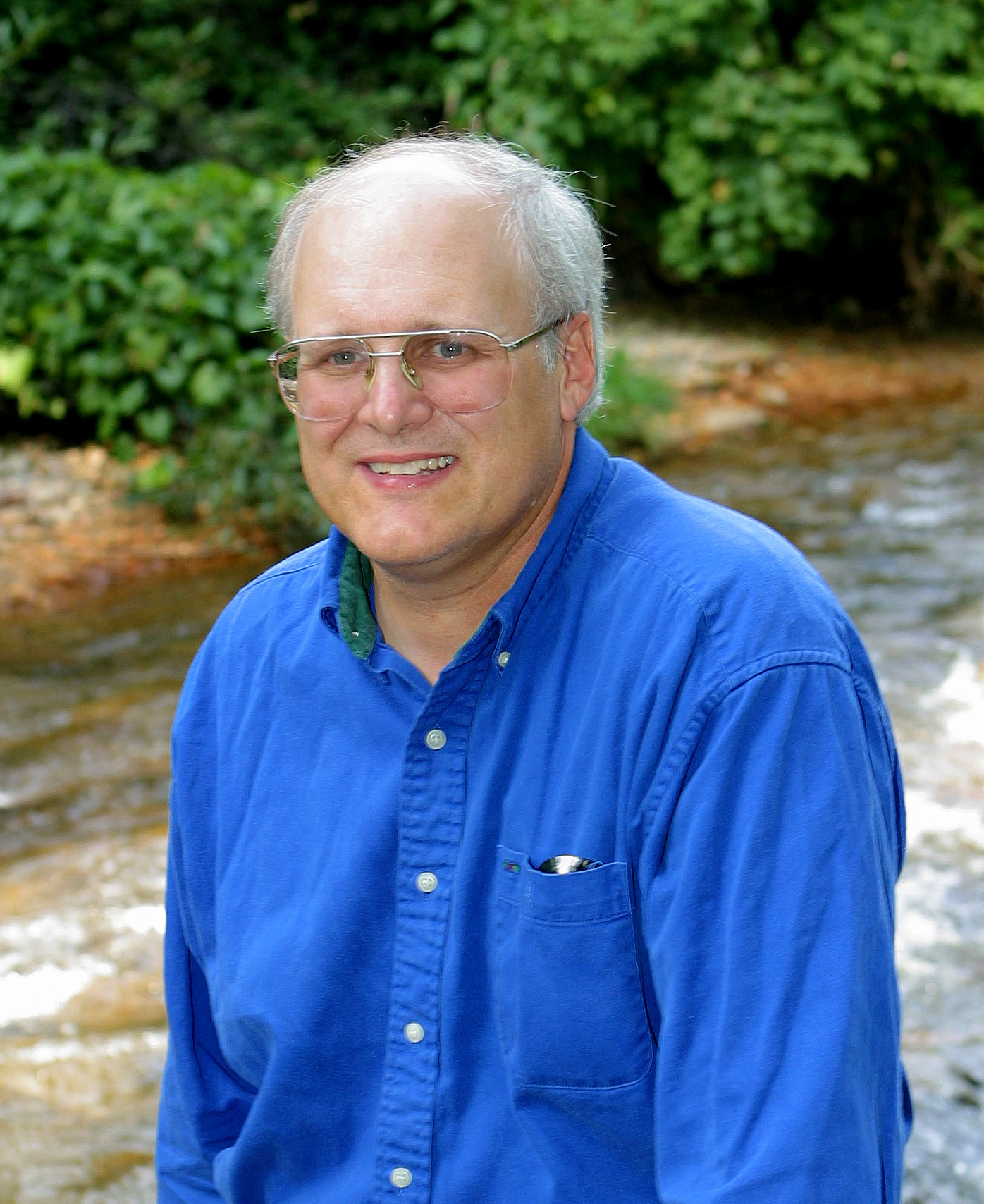
Roy Rasmussen received a B.S. degree in Physics and Mathematics from Wheaton College, Illinois in 1978, and a Masters and PhD from the University of California, Los Angeles in Atmospheric Sciences in 1980 and 1982, respectively, specializing in cloud physics. After receiving his doctorate, he was an Advanced Study Program postdoctoral researcher at National Center for Atmospheric Research (NCAR) . He is currently a Senior Scientist and director of the Hydrometeorology Applications Program at the Research Applications Laboratory at NCAR. He is an American Meteorological Society Fellow and has ten patents and over 100 peer reviewed journal papers.
Claudia Pahl-Wostl is full professor for resources management at the Institute for Environmental Systems Research (USF) in Osnabrück, Germany and visiting professor on water governance at the University of Saskatchewan, Canada. She is an internationally leading scholar on water governance and adaptive management of water resources. Her major research interests are adaptive, multi-level governance and management of water resources, social and societal learning and their role in sustainability transformations, and conceptual and methodological frameworks to analyze social-ecological systems. In 2012 the Bode Foundation Water Management Prize was awarded to Prof. Pahl-Wostl for the pioneering interdisciplinary work on “Governance in times of change” and comparative analyses of water governance in large river basins.
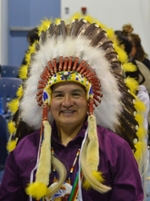
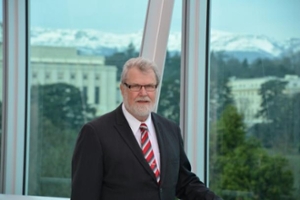
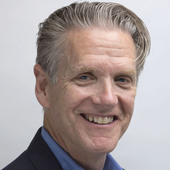
Scott White is Editor of The Conversation Canada. Previously, he was Editor-in-Chief of The Canadian Press and Vice-President, Content Strategy and Business Development at Postmedia Network. He has an MBA from the Rotman School of Management at the University of Toronto and is a graduate of the journalism program at Ryerson University.
Telling Your Research Story – Presented on behalf of the GWF Communications Core Team - is a chance for academics to learn how they can get their research and knowledge known to a wider, non-academic audience.
Scott will take you behind the scenes to show how authors work with The Conversation's editors to create content that is often viewed across the country and around the world.
Authors have access to a dynamic analytics dashboard which shows how many times their articles are viewed and what media outlets have published them. Participants are encouraged to bring story ideas to the presentation.
GWF Young Professional Events
The GWF Young Professionals in coordination with the Canadian Young Hydrologic Society (CYHS) are planning many great professional development and social events throughout the GWF Annual Science Meeting!
Please take the time to register for each individual event through the Eventbrite link to ensure there is enough space, food and refreshments:
When: May 14, 1:30 pm - 5 pm
Where: Classrooms TBA on the University of Saskatchewan Campus
Details: Global Water Futures - Young Professionals are invited to arrive in Saskatoon early on May 14th to partake in professional development workshops before the Global Water Futures 2nd Annual Open Science Meeting begins on May 15th. Students attending the workshops will meet at 1:30 pm at a location TBA on the U of S campus. From there, students will break out into groups of 20-30 students for the workshops. Sessions will run on the hour at 2 pm, 3 pm, and 4 pm. Each session will run 3 times so students will have the opportunity to attend each session. We ask that students plan to attend at least 2/3 sessions when registering for the event. A maximum of 90 students will be accepted into the workshop (ie.30 per session).
Workshops sessions are:
1) Writing for The Conversation - Daniel Hallen, Research Profile and Impact Specialist, U of S
2) Digital Storytelling - Andrew Spring and Stephanie Morningstar, GWF Knowledge Mobilization Specialists
3) KM Toolkit for YPs - Stephanie Merrill and Nancy Goucher, GWF Knowledge Mobilization Specialists
A full description of each workshop is provided on the Eventbrite registration page.
Registration Required? Yes
When: May 15, 6:00 - 9:00 pm
Where: 21st Street Brewery (Winston’s Basement)
Details: Young Professionals attending the GWF 2nd Annual Open Science Meeting are invited to 21st Street Brewery for an evening social on May 15th. Food will be provided and refreshments will be available for purchase. Activities will include a review of the 2018-2019 GWF-YP activities, introduction of new GWF-YP Executive, hydrology trivia, and other games tbd. Please join us to celebrate the achievements of our Young Professionals over the previous academic year and get to know your fellow YPs from across Canada
Registration Required? Yes
General Information
The second Global Water Futures (GWF) Annual Open Science Meeting is open to all members and affiliates of the GWF program and its extended community of partners, as well as all who wish to be involved with GWF. This meeting will bring together the GWF network for the second time, and will include a number of exciting, informative, and unique events and activities meant to review and better link together GWF’s technical and scientific advancements, whilst promoting further development and training of early career researchers, Indigenization of GWF, and engaging with partners and stakeholders.
The meeting will include the following:
- Plenary sessions featuring high level talks by leading scientists on key issues relevant to GWF, as well as highlights of some of the research accomplishments from the GWF Program.
- Parallel thematic oral sessions and poster presentations on Climate and Hydrology, Human dimensions and Hydro-economics, and Ecosystems and Water Quality to showcase the remarkable range and quality of research being done across GWF, and to foster collaboration, synthesis and user engagement through focused discussions.
- Local Indigenous cultural learning with a half-day event at Wanuskewin Heritage Park near Saskatoon. The group will participate in a number of different cultural learning activities to enhance knowledge of the history and culture of the Indigenous Peoples of the region.
- A public event to explore relevant and important water issues faced in the Canadian Prairies and what GWF is doing in response to the challenges. This will take place the evening of May 14, 2019.
- Professional development opportunities and workshops to build skills, strengthen communication abilities, and enhance collaboration and network building across GWF and beyond. These will be organized by the GWF Young Professionals and the Knowledge Mobilization and Communications Teams, and will take place on May 14, 2019.
Please contact us at gwf.secretariat@usask.ca with any questions.
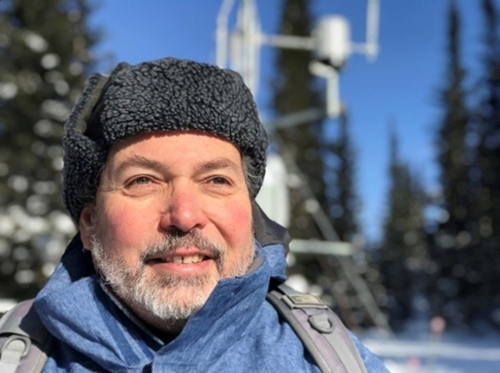
Dear colleagues, collaborators, and friends,
We are pleased to announce that the 2nd Annual Science Meeting of the Global Water Futures Program will take place in Saskatoon from May 15– 17, 2019. Please save the date!
Our main venue for the meeting will be TCU Place – a great space for plenaries, posters, break-outs, food and drink.
We are planning on hosting visitors at the University of Saskatchewan residences, with shuttle services running between the campus and the meeting venue in downtown Saskatoon.
For those of you who were able to join us in Hamilton and Six Nations Ontario last year, you will know that this meeting is a chance for us to come together to share, learn, plan and celebrate our achievements and I look forward to seeing as many of you there as can make it.
Travel and accommodation support will be available for GWF members.
Registration and the call for proposals is now open.
We look forward to seeing you in Saskatoon in May.
Yours truly,

John Pomeroy
GWF Director
Presenter Information
Those giving oral presentations have 12 minutes to present and 3 minutes to answer questions. Your presentation should be either a PowerPoint file or a PDF and have an aspect ratio of 16:9 or 4:3. Clickers and laser pointers will be provided for use during your presentation.
Please refer to the ASM agenda to identify the room your session is held in. Technical support will be provided at TCU Place to upload your presentation files.
Click here for the list of parallel sessions, presentations, and abstracts. (Click on the presentation title to see the corresponding abstract.)
Poster Creation Guidelines
- Poster boards are roughly four feet high by seven feet wide.
- The presentation must cover the material as cited in the corresponding submitted abstract.
- Place the title of your paper and the author’s names prominently at the top of the poster board to allow viewers to identify your presentation.
- Highlight the author’s names, e-mails, and address information in case the viewer is interested in contacting you for more information.
- Prepare all diagrams or charts neatly and legibly in a size sufficient to be read at a distance of 3 feet. Paragraph and figure caption text should be AT LEAST 24-point font and headers AT LEAST 36 point font.
- Organize the paper on the board so it is clear, orderly and self-explanatory.
- Include the background of your research followed by results and conclusions. A successful poster presentation depends on how well you convey information to an interested audience.
Setting Up Your Poster
- Location: please refer to map of TCU Place for poster number locations
- Set Up: morning of Wednesday, May 15
- Take Down: afternoon of Friday, May 17
You will be required to set up your own poster at your assigned location for the duration listed above.
Click here for the list of posters, assigned poster numbers, and poster abstracts. (Click on the poster title to see the corresponding abstract.)
Location, Lodging & Other Important Information
The Conference
The GWF 2nd Annual Science Meeting will take place at TCU Place.
Further information, such as check-in logistics, will be sent directly to the individuals that requested an accommodation.
Accommodations
Accommodations are available at USASK residences - College Quarter and can be reserved when registering (refer to map below).
College Quarter Residence (CQ) is located in the Varsity View community and was completed in 2012. CQ consists of fully furnished four-bedroom apartments. Four-bedroom suites have four separate bedrooms, two (or private) washrooms, one lounge area and one kitchenette per unit. Bedroom sizes within each apartment vary. Furnishings include: dining table/ island and chairs, fridge, stove, living room furniture, desks, chairs, beds, and built-in closets. (Cooking utensils, dishes, and cutlery not provided.)
Amenities: Pillows, Sheets, Blankets, Facecloths, Bath Towels, and Soap
Housekeeping Service: Garbage from dorm rooms will be removed daily with bedding being replaced weekly and towels being replaced every second day. All common areas will be cleaned daily. Groups can arrange for additional cleaning services with the Event Conference Manager. The group will be charged accordingly based on the level of service the groups requires.
Special Features: Your guests will have time to network or relax in one of the many lounges located in each building. Lounge areas feature large screen TV’s.
Complimentary wireless access is available in each room as well as the common areas.
Laundry facilities are available for the guests use. Guests are welcome to use the complimentary coin-operated machines. The machines will return the coins after the load selections have been made. Please note that laundry detergent/fabric softener/dryer sheets are to be provided by the individual.
College Quarter does feature Air Conditioning in all areas.
Internet
Wifi information will be available at TCU Place and a public wifi will be available at the USask residences.
Travel Support
Travel support of up to $500 per person is available to faculty, students and researchers of GWF projects and core teams traveling from a distance greater than 500 km. Please ensure you apply for this support during the online registration process. Please email gwf.secretariat@usask.ca for further information.
If you applied for travel support:
Up to $500 per person is available to assist with travel costs for faculty, students and researchers of GWF projects and core teams who requested travel support during the registration process. The support is to cover transportation tickets, parking and mileage ($0.4283/km personal car) only. The process for reimbursement of travel costs is to email your receipts to gwf.secretariat@usask.ca, after the meeting. Note that accommodations and most food during the event are provided free of charge.
